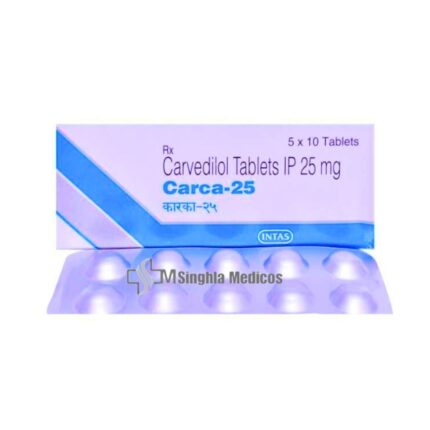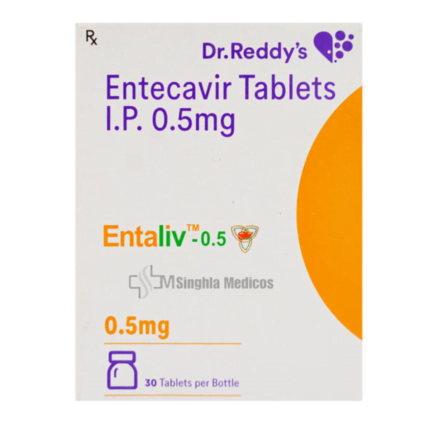

Carbox 300 Tablet
₹175.00 Original price was: ₹175.00.₹157.50Current price is: ₹157.50.
![]() Prescription Required
Prescription Required
Salt : Oxcarbazepine (300mg)
Manufacturer : Micro Labs Ltd
Packing : 10 tablets in 1 strip
Product Introduction
Carbox 300 Tablet is a pharmaceutical formulation primarily utilized in the treatment of various medical conditions associated with metabolic and neurological disorders. The active ingredient in Carbox 300 Tablet is carbidopa, which is often combined with other medications such as levodopa to enhance its efficacy. Carbidopa functions by inhibiting the decarboxylation of peripheral levodopa, thus increasing the availability of levodopa in the central nervous system where it can exert its therapeutic effects. Manufactured under stringent quality controls, Carbox 300 Tablet is available by prescription and should be used under the guidance of a healthcare professional to ensure safety and effectiveness.
Uses of Carbox 300 Tablet
Carbox 300 Tablet is predominantly prescribed for the management of Parkinson’s disease and Parkinson-like symptoms. Parkinson’s disease is a progressive neurological disorder characterized by tremors, rigidity, bradykinesia, and postural instability. These symptoms are primarily due to the depletion of dopamine in the brain. Carbidopa, the active ingredient in Carbox 300 Tablet, helps by preventing the breakdown of levodopa before it reaches the brain, thereby increasing the concentration of dopamine in the central nervous system. This mechanism aids in alleviating the symptoms of Parkinson’s disease.
Additionally, Carbox 300 Tablet can be employed in the treatment of other conditions that require the management of dopamine levels in the brain. This includes specific types of dystonia, a movement disorder causing muscle contractions and abnormal postures, and certain metabolic disorders where dopamine regulation is a component of therapeutic strategy.
Benefits of Carbox 300 Tablet
The primary benefit of Carbox 300 Tablet lies in its ability to enhance the effectiveness of levodopa therapy in patients with Parkinson’s disease. By inhibiting the peripheral metabolism of levodopa, Carbox 300 Tablet ensures more of the administered levodopa reaches the brain, which leads to:
- Improved Motor Function: Patients often experience a reduction in tremors, muscle stiffness, and bradykinesia, allowing for better control over their movements and improved overall motor function.
- Enhanced Quality of Life: By alleviating the primary symptoms of Parkinson’s disease, patients can enjoy a more active and independent lifestyle.
- Reduced Dosage Requirements: Because Carbox 300 Tablet increases the bioavailability of levodopa, patients may require lower doses of levodopa to achieve the desired therapeutic effects. This can reduce the risk of side effects associated with higher doses of levodopa.
- Symptom Management: Effective management of symptoms helps in reducing complications related to Parkinson’s disease, such as falls due to postural instability, thereby enhancing patient safety.
Side Effects of Carbox 300 Tablet
While Carbox 300 Tablet is generally well-tolerated, it is not without potential side effects. These side effects can range from mild to severe and may vary among individuals. Common side effects include:
- Nausea and Vomiting: These are the most frequently reported side effects, often occurring when therapy is initiated or doses are increased.
- Orthostatic Hypotension: This condition, characterized by a sudden drop in blood pressure upon standing, can lead to dizziness and lightheadedness.
- Dyskinesia: Involuntary movements can occur, particularly with long-term use or higher doses of levodopa.
- Psychiatric Symptoms: These can include hallucinations, confusion, and mood changes such as depression or anxiety.
- Gastrointestinal Disturbances: Patients might experience diarrhea or constipation.
- Cardiovascular Issues: Rarely, patients may experience palpitations or irregular heartbeats.
References
-
Stahl SM, editor. Oxcarbazepine. In: Stahl’s Essential Pschopharmacology: Prescriber’s Guide. 5th ed. New York, New York: Cambridge University Press; 2014. pp. 497-501.
-
Porters RJ, Meldrum BS. Antiseizure Drugs. In: Katzung BG, Masters SB, Trevor AJ, editors. Basic and Clinical Pharmacology. 11th ed. New Delhi, India: Tata McGraw Hill Education Private Limited; 2009. pp. 406-407.
-
Briggs GG, Freeman RK, editors. A Reference Guide to Fetal and Neonatal Risk: Drugs in Pregnancy and Lactation. 10th ed. Philadelphia, PA: Wolters Kluwer Health; 2015. pp. 1037-38.
Disclaimer
Singhla Medicos primary intention is to ensure that its consumers get information that is reviewed by experts, accurate and trustworthy. The information and contents of this website are for informational purposes only. They are not intended to be a substitute for professional medical advice, diagnosis, or treatment. Please seek the advice of your doctor and discuss all your queries related to any disease or medicine. Do not disregard professional medical advice or delay in seeking it because of something you have read on Singhla Medicos. Our mission is to support, not replace, the doctor-patient relationship.
Shipping Policy
We ship across India. Note – this is subject to change as per Company Wishes. Packages will be shipped in 24 working hours. we are closed on Sundays and will reach you in the next 2-4 days post shipping. We give the estimated time of delivery on the shipping page. However, these are indicative and depend on our shipping partner.
Delivery
The delivery times are subject to location, distance, and our logistics partners. We are not liable for any delays in delivery by the courier company/postal authorities but will help you track down a package through our partner courier services.
Your purchases may reach you from various locations in more than one package. But rest assured, you will be charged one delivery fee for the entire order. As soon as your package ships, we will email you your package tracking information.
We are bound in coverage by their reach even though we use some of India’s largest logistics companies for shipping. In case your address is in a location not served by them we would contact you to find an alternative solution to make your products reach you.












Reviews
There are no reviews yet.